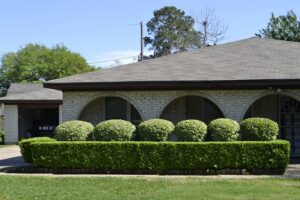Introduction
If you’re experiencing issues with your garage door not closing, it can be frustrating and inconvenient. Understanding the possible reasons behind this problem can help you troubleshoot and resolve the issue more effectively. In this article, we will explore some common causes for a garage door not closing and provide potential solutions to get it working properly again.
1. Sensor Misalignment
One of the most common reasons for a garage door not closing is sensor misalignment. Garage doors are equipped with safety sensors on either side of the door near the ground. These sensors send an infrared beam to each other, ensuring that nothing obstructs the path of the door. If the sensors are misaligned, the door may not close to prevent potential accidents.
Solution: Check if the sensors are properly aligned. Make sure they are facing each other and there are no obstructions blocking the beam. Clean the sensors with a soft cloth to remove any dirt or debris that may interfere with their functionality. Adjust the sensors if necessary, following the manufacturer’s instructions.
2. Sensor Malfunction
In some cases, the sensors themselves may be malfunctioning, leading to the garage door not closing. Over time, sensors can become damaged or worn out, resulting in a failure to detect the infrared beam properly.
Solution: Inspect the sensors for any visible damage or signs of wear. If you notice any issues, such as a cracked lens or loose wiring, it may be necessary to replace the sensors. Contact a professional garage door technician to assist you with sensor replacement.
3. Track Obstruction
Another possible cause for a garage door not closing is an obstruction in the door’s track. If there is an object, debris, or even ice in the track, it can prevent the door from closing properly.
Solution: Inspect the tracks for any obstructions and remove them carefully. Use a level to ensure the tracks are properly aligned. Clean the tracks with a brush or cloth to remove any dirt or debris that may be causing the obstruction.
4. Broken Springs or Cables
Broken springs or cables can also prevent a garage door from closing. Springs and cables play a crucial role in the smooth operation of the door, and if they are damaged or broken, the door may not close properly.
Solution: If you suspect that the springs or cables are broken, it is essential to seek professional assistance. Garage door springs are under high tension and can be dangerous to handle without proper knowledge and tools. Contact a reputable garage door repair company to inspect and replace any broken springs or cables.
5. Power Issues
Sometimes, a garage door not closing can be due to power-related issues. If there is a power outage or a problem with the electrical connection, the door may not function correctly.
Solution: Check if the garage door opener is receiving power. Ensure that the circuit breaker or fuse for the garage door opener is not tripped or blown. If necessary, reset the breaker or replace the fuse. If the problem persists, consult an electrician to diagnose and resolve any electrical issues.
Conclusion
A garage door not closing can be caused by various factors, including sensor misalignment, sensor malfunction, track obstructions, broken springs or cables, and power issues. By identifying the specific cause, you can take appropriate steps to fix the problem and restore the functionality of your garage door.
References
– Chamberlain: Garage Door Opener Troubleshooting – www.chamberlain.com/support/garage-door-opener-troubleshooting
– The Family Handyman: Garage Door Won’t Close – www.familyhandyman.com/project/garage-door-wont-close
– Precision Garage Door: Why Won’t My Garage Door Close? – www.precisiondoor.net/blog/why-wont-my-garage-door-close











